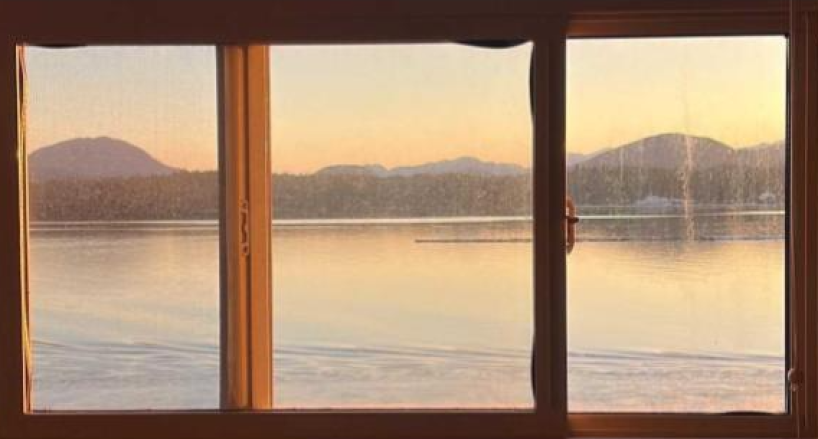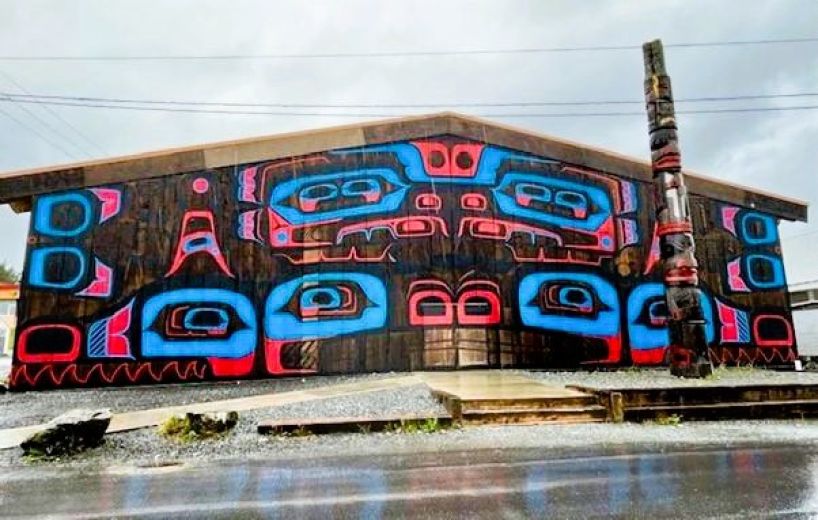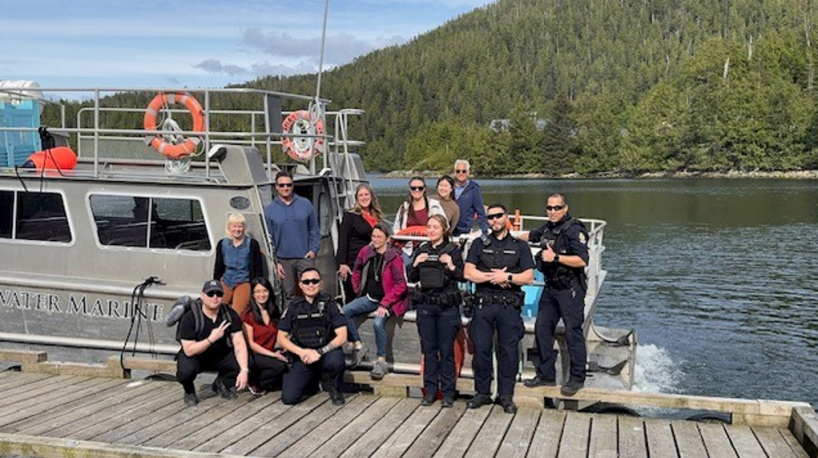Bringing the Court to BC’s west coast islands

Several times a year a Provincial Court judge and court team travel by plane and boat to hold court on islands on BC’s Central Coast, more than 600 kilometres northwest of Vancouver.
For the last thirty years, the Court has travelled about five times a year to spend a week in Bella Bella, home of the Heiltsuk Nation on Campbell Island. About three times a year, the Court team also spends time in Klemtu, home of the Kitasoo and Xai’ Xais Nations on Swindle Island.
Judge Roy Dickey says:
”Bella Bella and Klemtu are beautifully situated directly east of the southern tip of Haida Gwaii. Klemtu is part of the Great Bear Rainforest. I have had the great fortune of sitting in circuit court in Bella Bella and Klemtu for the last four years. It has been an exceptional experience.
Most residents of Bella Bella (population about 1600) and Klemtu (about 500) are Indigenous. Our team is very fortunate to be welcomed into their communities. They are proud Nations, actively promoting their own identity and self governance. They have strong historical and spiritual connections to the land and the ocean. They continue to gather food from both. Members of the Heiltsuk and Kitasoo have presented us with resources from their land and ocean, including herring roe, spotted prawns, fish, and dried seaweed.

Most of the work we do in these communities involves criminal and family matters. We often help people who know one another as neighbours, friends, and community or family members. The communities’ remoteness adds a layer of complexity to our work. Often people with disputes, or who have caused harm, continue to live in close proximity to one another. This challenges us to provide ways to help everyone to heal and reintegrate to support a safe, stable, and thriving community.
The Bella Bella and Klemtu circuit court team consists of court clerks, sheriffs, federal and provincial prosecutors, Legal Aid criminal and family duty counsel lawyers, youth and adult probation officers, and a judge. At times we will also have lawyers in criminal or family matters, or for the Ministry of Children and Family Development, and students from the Allard Law School Indigenous Law Clinic and Judicial Interns’ program.
We are known as “the court team”, both within our group and within Bella Bella and Klemtu. Some of us spend fixed periods on the team (judges are generally assigned to a circuit for five years) while others have been working in Bella Bella and Klemtu for decades. I cannot speak highly enough of the dedication and commitment of team members and the sacrifices they make to provide assistance to the communities we serve.

As well as holding court in person in Bella Bella and Klemtu, we conduct court remotely from the Robson Square Courthouse in Vancouver once a month. People appearing from the communities and members of the court team can attend court remotely using the Microsoft Teams video conferencing platform.
We are very fortunate to work hand in hand with the Heiltsuk Nation’s Restorative Justice Program in Bella Bella. They are extremely important to the community. It is a community-driven program, providing extensive services in a timely manner. For example, substance abuse issues are very often addressed shortly after charges are laid and well before matters get to court.
This program is outside the court process, but it can be a significant factor when I consider an appropriate sentence or decide terms of a family court order. The program offers a variety of options to help the victim, the offender, and the community to heal and reintegrate. As an example, the Heiltsuk Nation has historically used “Isolation Islands” as an option in their restorative justice program. This requires an individual to live in isolation for a period of time to reflect on their actions.
The Kitasoo and Xai’ Xais also have a restorative justice program. It is in the developmental stage at this time and we hope to be able to work with the community to move this program forward.
I’ve mentioned the personal sacrifices court team members make to commit to the sometimes challenging travel and long days required for circuit court. But there are many rewards. Many of us are drawn to this type of work to assist others and to make our communities stronger. The best reward is to see this happening in real time over an extended period, one file and one person at a time.”
This page was printed from:
https://provincialcourt.bc.ca/news-notices-policies-and-practice-directions/enews/08-07-2025
